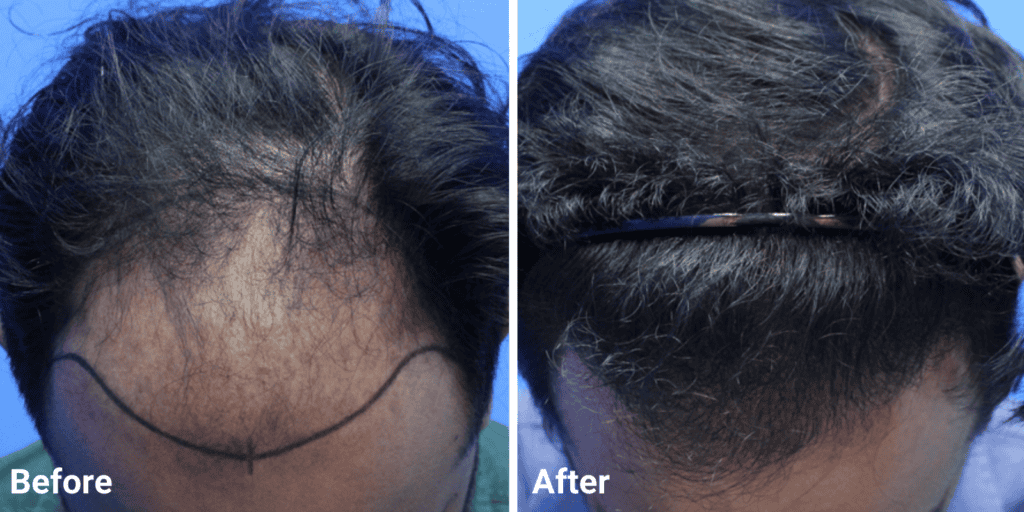FUE MALE HAIR TRANSPLANT
FUE i.e Follicular Unit Extraction, involves removing healthy hair follicles directly from a donor area on the scalp which is also called permanent area and grafting them onto the bald or thinning areas. Male pattern baldness is something that we treat in our clinic very often. There are many types of male pattern baldness, from stage 1 to stage 7 according to the Norwood classification. We provide treatments for all stages, and we can either do a fully-shaven or a partly-shaven FUE transplant. Here at Hair Transplant Centre Malaysia, our services are available to people of all ages, races and hair types. Since everyone has different types of hair with a different caliber, we have many tools of different sizes to create punches during the transplant procedure. We also provide post-care treatments which are included in the service and we will follow up and guide you through the after-care journey.
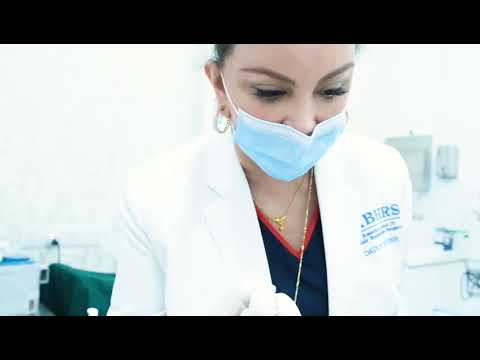
How is it Done?
FUE, is the latest and the most sort after hair transplant technique for hair restoration. It is a safe procedure and done under local anesthesia, where the ring block anesthesia is done at the donor area where we harvest / extract the grafts and at the recipient area i.e your bald areas where the grafts are then planted.
FUE technique of hair restoration can be done by fully shaven method or partly shaving where one’s hair has to be long and can be tied up and shaven only at the marked donor area where we need to harvest /extract the grafts and at the recipient areas we part the hair at different areas of hair loss and plant the grafts.
One can wear a cap or a scarf the very next day after FUE hair transplant procedure.
MAIN PROCEDURE OF HAIR TRANSPLANTATION
The entire process has minimal to no pain, and recovery time is quite fast.
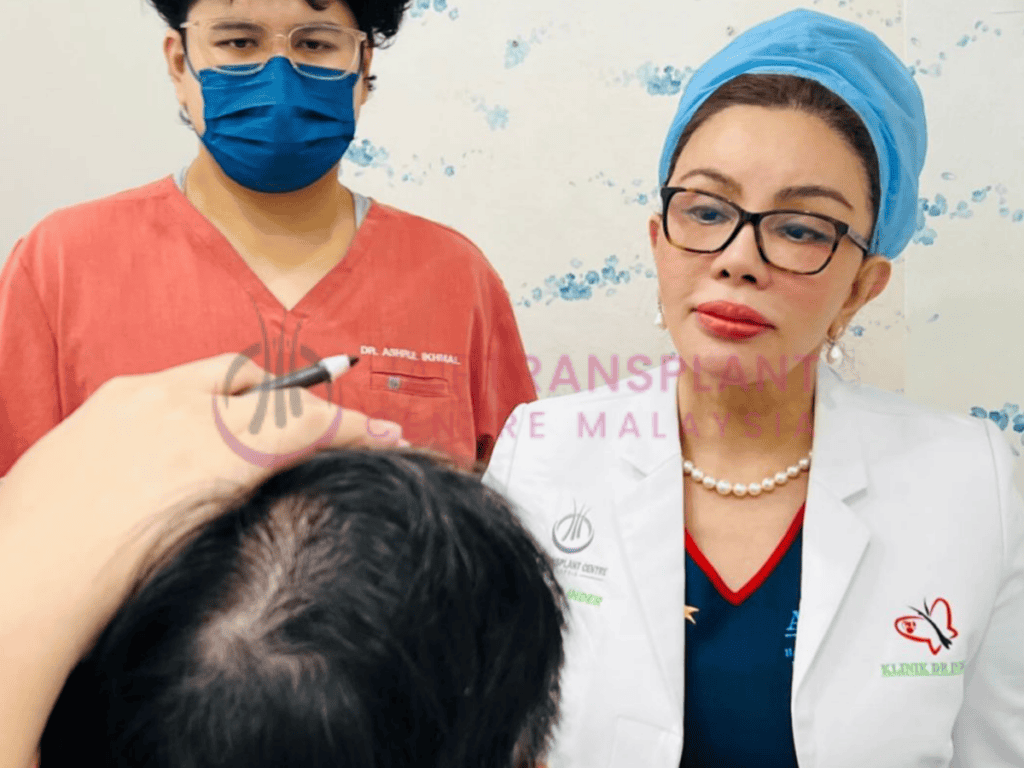
1. Consultation & Treatment Plan
During the consultation, the surgeon evaluates your hair loss pattern, scalp health, and medical history.
Hair Loss Assessment: The surgeon evaluates the pattern and extent of your hair loss.
Scalp Health Check: A thorough examination of your scalp condition to ensure it’s healthy for the procedure.
Graft Calculation: Estimation of the number of grafts needed for optimal coverage and density.
Hairline Design: Personalized hairline design based on your facial structure and aesthetic goals.
Procedure Overview: Explanation of the procedure, recovery timeline, and answers to any questions you may have.
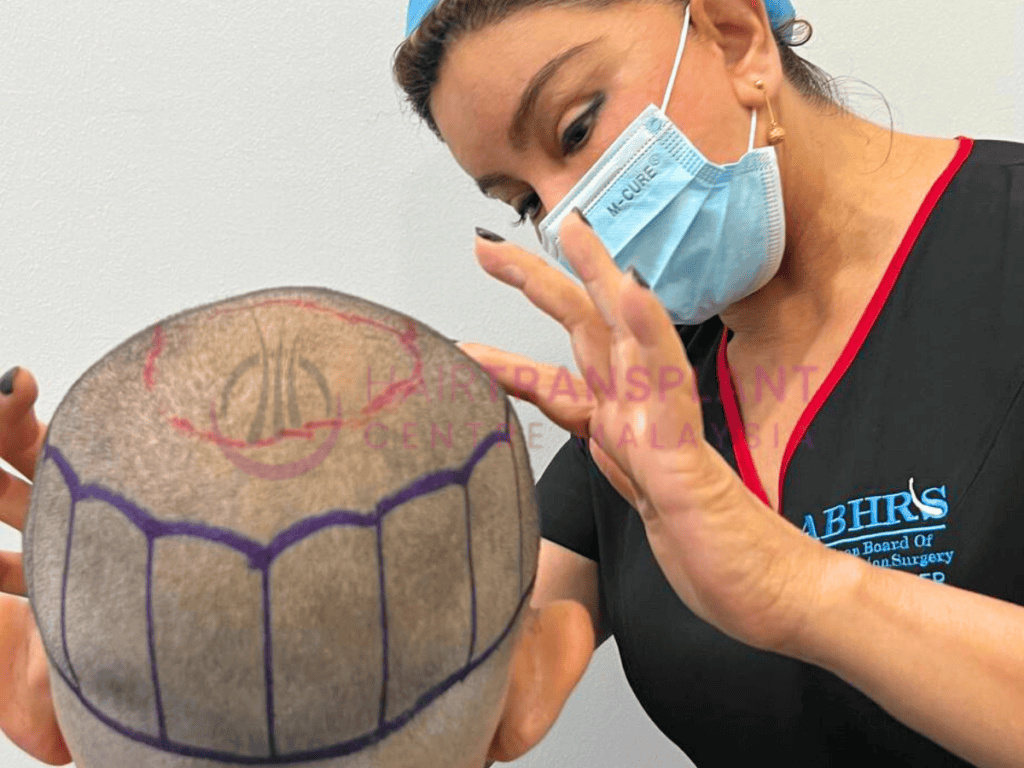
2. Treatment Preparation
Hair Shaving: In most cases, the entire scalp or targeted areas are shaved to ensure better visibility and precision during the procedure.
Donor Area Trimming: The donor area, usually at the back of the scalp, is specifically trimmed to prepare for efficient follicle extraction.
Local Anaesthesia: Local anaesthesia is administered to numb both the donor and recipient areas, ensuring a comfortable and pain-free experience.
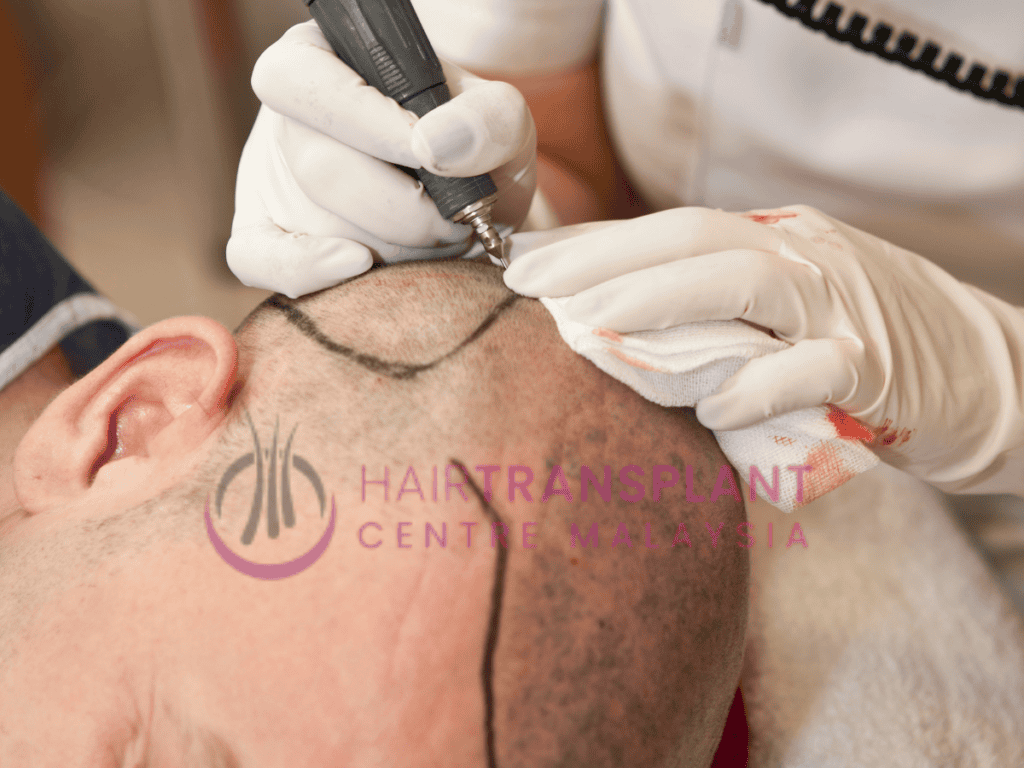
3. Follicle Extraction
Hair Follicle Harvesting: Using a micro-punch tool, individual hair follicles are carefully extracted from the donor area, usually at the back or sides of the scalp.
FUE Technique: Advanced tools are used to minimize trauma to the follicles and surrounding tissue, ensuring better survival rates and quicker recovery.
Preservation: The extracted follicles are preserved in a specialized solution to maintain their viability before implantation.
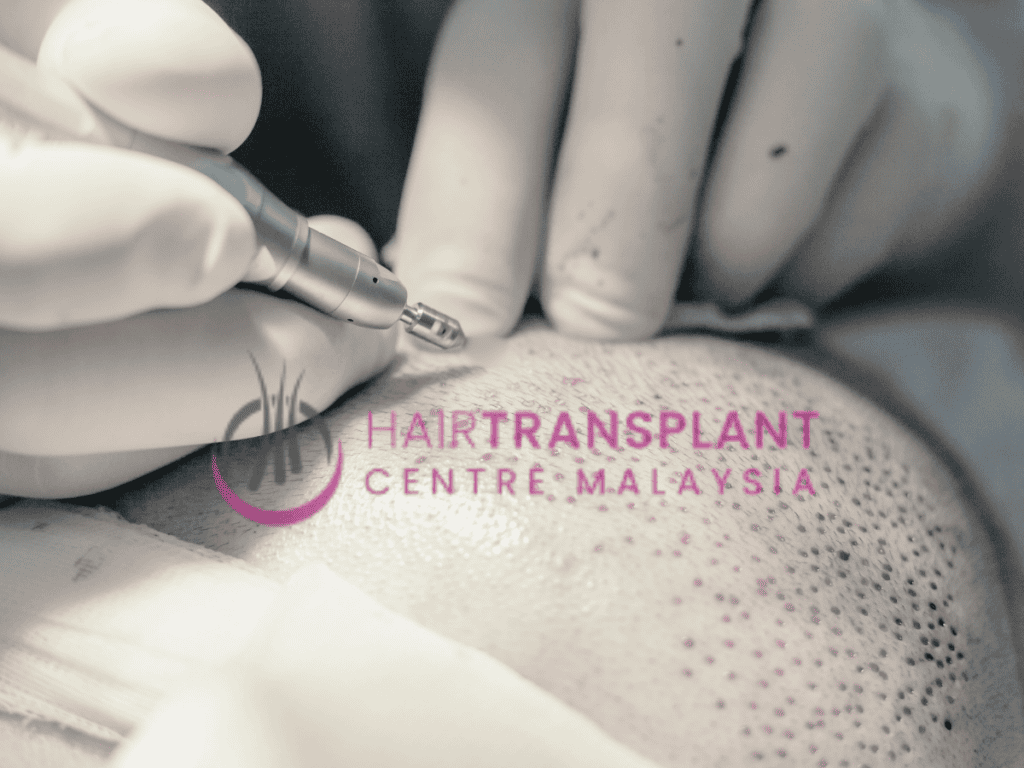
4. Recipient Site Creation
Making Tiny Incisions: Small cuts are made in the areas where the new hair will be placed.
Hairline Design: The surgeon designs the incisions to match your natural hairline, making sure the hair will grow at the right angle and direction.
Ensuring Full Coverage: The incisions are spaced to give you even hair growth and a natural look.
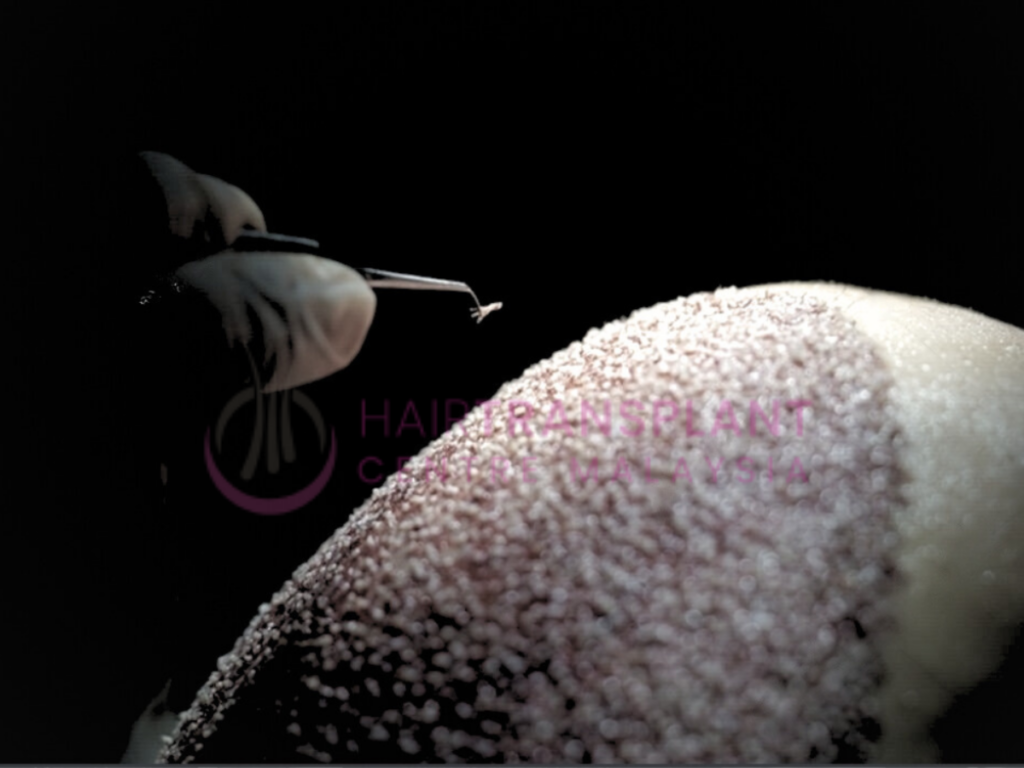
5. Hair Graft Placement
Placing the Grafts: The harvested hair follicles are carefully placed into the tiny incisions in the recipient area.
Attention to Detail: Each graft is positioned at the correct angle and depth to match your natural hair growth pattern.
Creating a Natural Look: The surgeon ensures that the grafts are evenly distributed to achieve a full, natural-looking hairline and coverage.
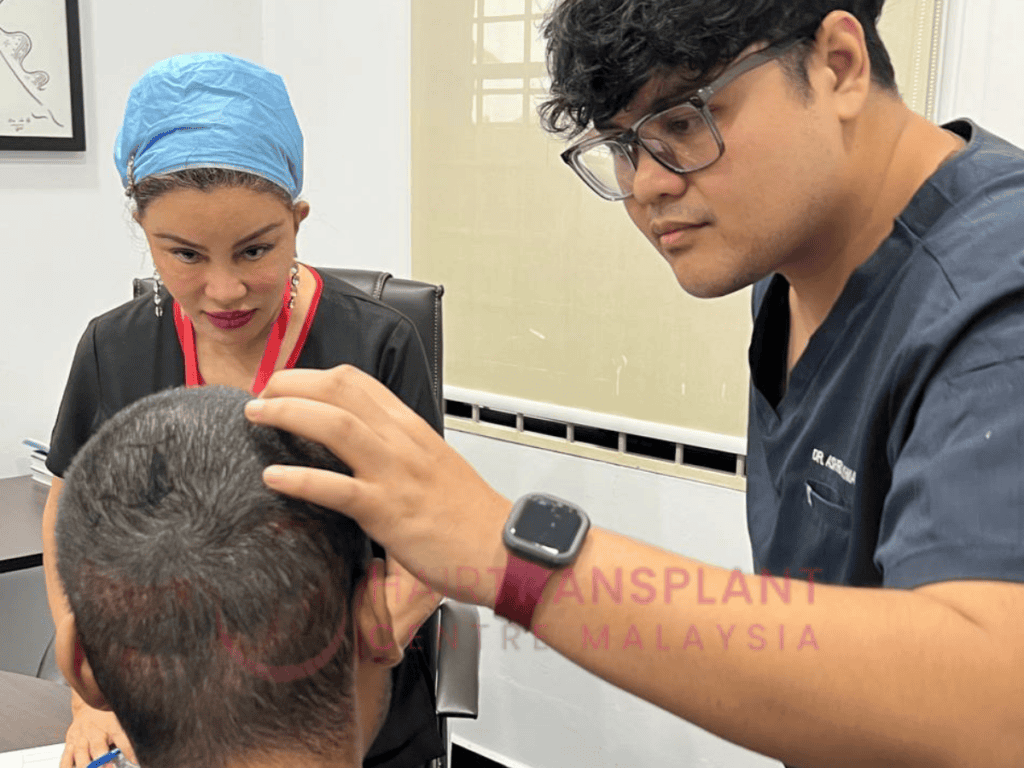
6. Post-Procedure Care
Gentle Care: Follow instructions on washing your scalp, avoid touching or scratching the treated areas, and sleep with your head elevated to reduce swelling.
Medication & Healing: Take prescribed antibiotics to prevent infection and pain relievers as needed, while avoiding strenuous activities and sun exposure.
Follow-Up: Attend regular follow-up appointments to track progress and ensure the grafts are healing properly.
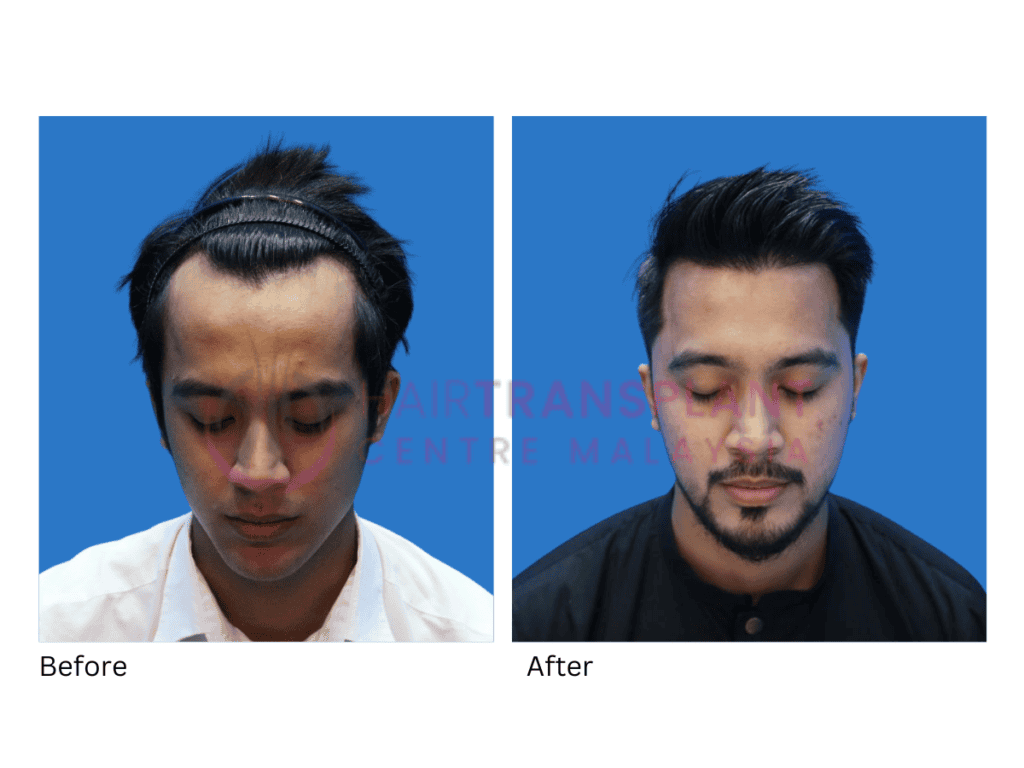
7. Recovery and Long-Term Care
Initial Recovery: Expect swelling and scabbing for about a week; hair shedding is normal in the first few weeks.
Hair Growth Timeline: New hair growth starts around 3 to 4 months, with full results visible in about 12 months.
Ongoing Care: Follow your hair care routine, avoid excessive sun, and keep up with any prescribed treatments. Regular check-ups will help ensure success.
Advantages of FUE Hair Transplantation

Unnoticeable scar
There are no stitches, so the donor area heals within days
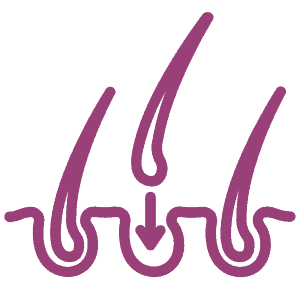
Fast recovery
The results are natural-looking and permanent

High success rate
It is a solution for incipient and advanced hair loss.

Unnoticeable scar
Free consultation with our trusted doctors and get the best recommendations

Scarce donor area make it look unaffected
Feel less pain and after the operation

No pain during treatment
It’s a state-of-the-art, minimally invasive technique
Recovery
You can leave the clinic immediately after treatment. Healing takes approximately 3-4 days, after which point any redness or slight swelling in the treatment area will have subsided.
After a successful transplantation, the transplanted hair might fall after 3 weeks, but this should not worry you as they grow back better than ever, after 3 to 6 months.
The patient can get back to his routine life within one week of the treatment.
FUE MALE RESULT BEFORE AFTER TREATMENT
